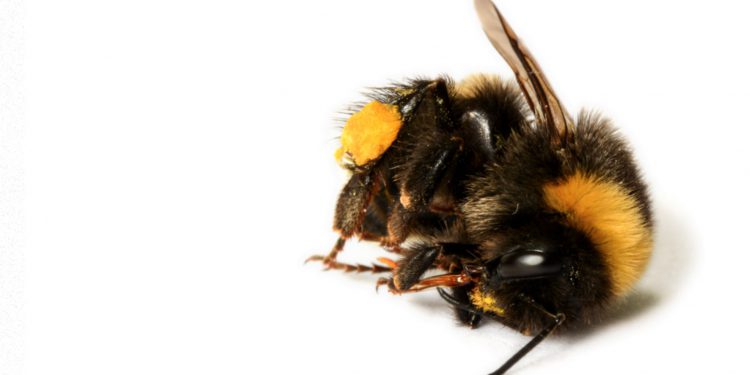The UK Government has published its guidance, following the shock decision to allow the use of neonicotinoids, previously banned under EU law.
It emerged that the National Farmers Union had secretly lobbied for the reintroduction of the pesticide, with 1,200 of members writing to ask for the use of Cruiser SB neonicotinoid treatment. Leaving the EU at the end of December was eyed as the opportunity for its reintroduction.
A leaked NFU letter read: “Thank you for being one of the 1,200 growers who signed the joint letter to Defra’s Secretary of State urging him to allow Cruiser SB neonicotinoid dressed seed to be used next spring.
“Engagement on this campaign has been truly incredible and shows that we are stronger together.
“Please refrain from sharing this on social media.”
It added: “We believe this will have a stronger impact on the Secretary of State if kept out of the public domain.”
The Wildlife Trusts is lobbying against the move. Director of Public Affairs Joan Edwards, has said, “The Government bowed to pressure from the National Farmers Union even though, three years ago, the UK Government supported restrictions on the neonicotinoid pesticides across the European Union, because of the very clear harm that they were causing to bees and other pollinators.
“The applicant recognised that risks could be posed to bees from flowering weeds”
“Insect populations have suffered drastic declines in the UK – and these are set to have far-reaching consequences for both wildlife and people.
“Recent evidence suggests we have lost 50% or more of our insects since 1970, and 41% of the Earth’s remaining five million insect species are now ‘threatened with extinction’.
“It’s absurd that as the UK Government commits to spending £3 billion of international climate finance on restoring nature and biodiversity, it is also approving the use of nature-destroying neonicotinoid pesticides here in the UK.”
The Trusts petition reads, “We are shocked that the Secretary of State, George Eustice, has used his power to allow this.
“The decision to allow emergency use of thiamethoxam goes against all commitments this Government has made to help nature – including an explicit pledge to keep pesticide restrictions after Brexit. It invalidates pledges around nature’s recovery made less than six months ago…
“Even worse, the authorisation involves killing wildflowers that grow alongside the sugar beet by adding weedkiller – on the basis that this will ‘protect’ bees from beneficial ‘weeds’ that will have absorbed neonicotinoids through the contaminated soil. This would devastate precious wildflower habitats and the already endangered insects that depend on them.”
The government’s advice says that, “the risks to bees from the sugar beet crop itself were assessed to be acceptable. The applicant recognised that risks could be posed to bees from flowering weeds in and around the crop and proposed to address this with the use of industry-recommended herbicide programmes to minimise the number of flowering weeds in treated sugar beet crops. This was considered to be acceptable. The applicant recognised that the persistence and mobility of neonicotinoids in soils could result in residues with the potential to cause unacceptable effects to bees in following crops. Measures were proposed to mitigate the identified risks through the exclusion of flowering crops in subsequent cultivations.”























